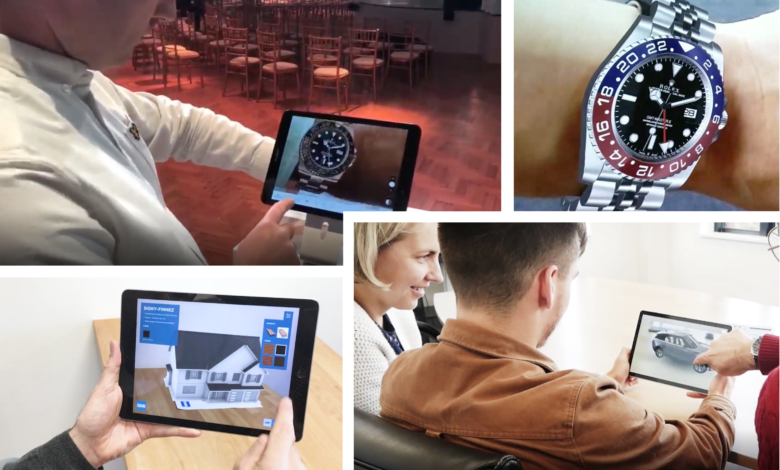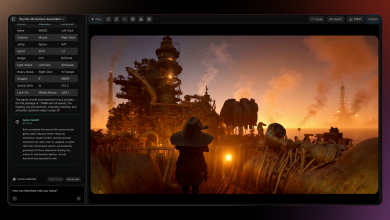
If there’s ever a silver lining to look forward to, once the COVID cloud clears it’s a reinvigoration and reassociation with all that is digital and XR or extended reality will have a major part in this.
After all, how would we have all coped if during this lockdown period we had only 4 free-to-air TV channels, no Netflix, no YouTube, no Tik-Tok, Zoom, or House Party?
In fact no social media at all. Joe Wicks wouldn’t exist, binge-watching wouldn’t be the norm, and they’d certainly be no online deliveries repeated to your door.
For some reading this article, that sounds like hell as I’ve no doubt those readers won’t remember “the good old days” pre-internet.
And for the rest of us, a newfound appreciation I hope of those platforms and content creators that have kept us fit, fed, family orientated, and functioning during this time.
Up until the COVID-19 lockdown, I had always felt that when it came to digital, it had all gotten a bit stale in recent years.
The last big boom so to speak would have been social media, and even that (in its various guises) now, is over a decade old as a channel.
Brands, companies, businesses big and small all adapted to this transformation and digital evolution at their own pace, all of which I would bet now would confidently say that they got it sorted.
But got what sorted exactly, that’s what I’m interested to know and I ask the questions “Is that it? Is digital done? Or is there actually a more significant shift accelerating towards the digital population now that can be embraced, given the unprecedented amount of screen-time we’ve all been partial to because of the COVID lockdown?”
The answer is ofcourse the latter.
There is a shift coming, and now it’s faster than ever.
What the COVID-19 pandemic has meant to the business world is a complete rethink of how it’s best to engage with an end-user (be it an employee or customer).
While the world embraces the conventional digital activities put out by many, the smart forward-thinking ones out there are using this time to trial new initiatives to a captive audience, because let’s face it we’ve all not got much to do of an evening, or at a weekend.
Now’s never been a better time to explore your options beyond 2D digital, and really explore the art of what’s possible given today’s digital technology and content capabilities.
For this, my focus orientates around the XR industry and the tools that this exciting, ever-expanding sector of digital can present.
XR or ‘extended reality’ quite simply put is an umbrella term used to describe all computer-generated / enhanced environments that either merges physical and digital worlds (as is the case with Augmented and Mixed Reality, or create an entirely immersive experience for the user (Virtual Reality)).
Considering the two currently most popular “realities” under the XR umbrella, both Augmented Reality and Virtual Reality have shown themselves to be rather a hot topic recently, and I shall elaborate as to why.
Mobile marketing needs Augmented Reality right now
If we take Augmented Reality or “AR” as it is commonly known as, it can best be described as a visualization tool that lets the user (by way of their smart mobile/tablet device) superimpose or “layer” digital content onto the world around them.
Now AR in itself is not a new type of digital technology, and its popularity as a social media content creation tool is never more so apparent than the digital face masks and filters I’ve no doubt you would have experienced via platforms such as Snapchat, Instagram, and Facebook.
Yet beyond the digital dog ears, meme generators, and the odd Pokemon still lurking around how can AR actually be used by businesses.
The answer is quite simple, AR has the capabilities of allowing you to position your product in a person’s own environment without the need for the actual product to be present in the first instance.
Consider this in practice during the COVID-19 lockdown.
Your customer base is sat at home or in the garden scrolling through their phone, browsing an infinite number of “traditional” digital promotions that all of your competitors have put out in abundance.
How do you stand out?
How do you create a digital content experience that’s going to make you the cut above the rest?
AR is your answer, particularly if you have a physical product that typically your customer would want to see prior to purchase – so think cars, home furnishings, jewelry, personal accouterments relevant to fashion, even appliances.
During this lockdown period, no one is coming to your showroom, no one is coming into your store, but there is still a customer out there.
Sure, you can do what you’ve always done and blast them with some kind of discounted e-promotion, but that’s what everyone else is doing.
Wouldn’t you want to be the one to put a smile on that person’s face by giving them a much richer product experience than what they are getting from the rest of them? I know I would.
And that’s just the tip of the iceberg, so it’s worth investigating what’s possible with AR technology, and how this can best fit your business as I bet you’ll be surprised.
Not only with regards to what you can do, but also how easy it is to achieve because let’s not forget, what you need to receive and enjoy AR content, everyone already has in the palm of their hand.
Virtual Reality keeps the workforce training up and running
Virtual Reality (VR) in much the same way as AR during this lockdown has also been causing quite a fuss amongst the many.
Unlike augmented reality, virtual reality’s intention is to take you somewhere else, away from where you are physically present and into a virtual world.
The key to this is “physically present” and as we have identified, currently the state of physical presence is one of being at home.
Concerts, holidays, sporting activities, events both big and small, in fact, every social gathering in significant numbers don’t exist, and yet does that mean they can’t happen?
Virtual Reality gives your audience the opportunity to come into your world, without actually leaving where they are.
And while it’s obvious to think of how a virtual reality solution can satisfy a postponed real-world gathering, let’s go beyond that and think about how virtual reality now is proving itself as a worthy, low-risk tool for training.
If the global PR put out by the VR industry would have had you believe, by now we would all be existing in our VR headsets happily going about our daily business in the virtual sense.
But this is still yet to happen for the vast majority of us.
And as such we have expanded our acceptance of “a virtual experience” to include non-headset dependent VR experiences such as Virtual Tours made possible via a web browser or mobile, as the intention is still the same; to give people the opportunity to escape from their physical confines and explore somewhere new, digitally.
So for those that have a premises, a facility, a location, an environment, site, complex, or development, VR during this time is proving itself to excel as a digital content channel capable of delivering a user experience well above the norm.
If you haven’t investigated the virtual reality of today, then I wholeheartedly suggest that you do as I guarantee you will be surprised on many levels.
XR heralds the next internet, and our transition to a much more digitally enhanced way of being in every respect. And if you’re considering the best way to keep your audience engaged at this time, what XR presents to you is not to be ignored.
XR is to be enjoyed, experimented with, and actively encouraged because at the end of the day what this lockdown has shown us is that the audience for digital is very well ready to receive.






2 Comments